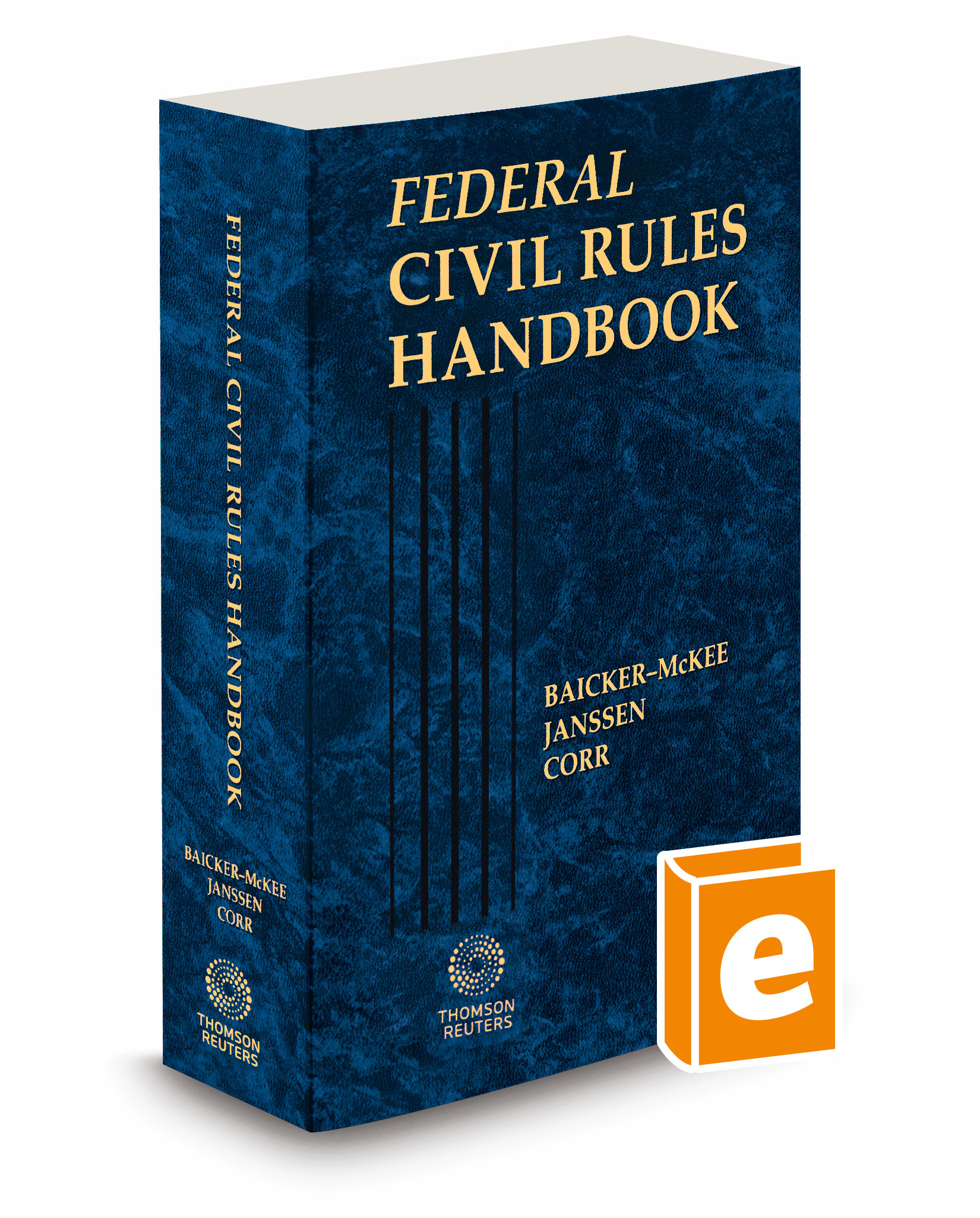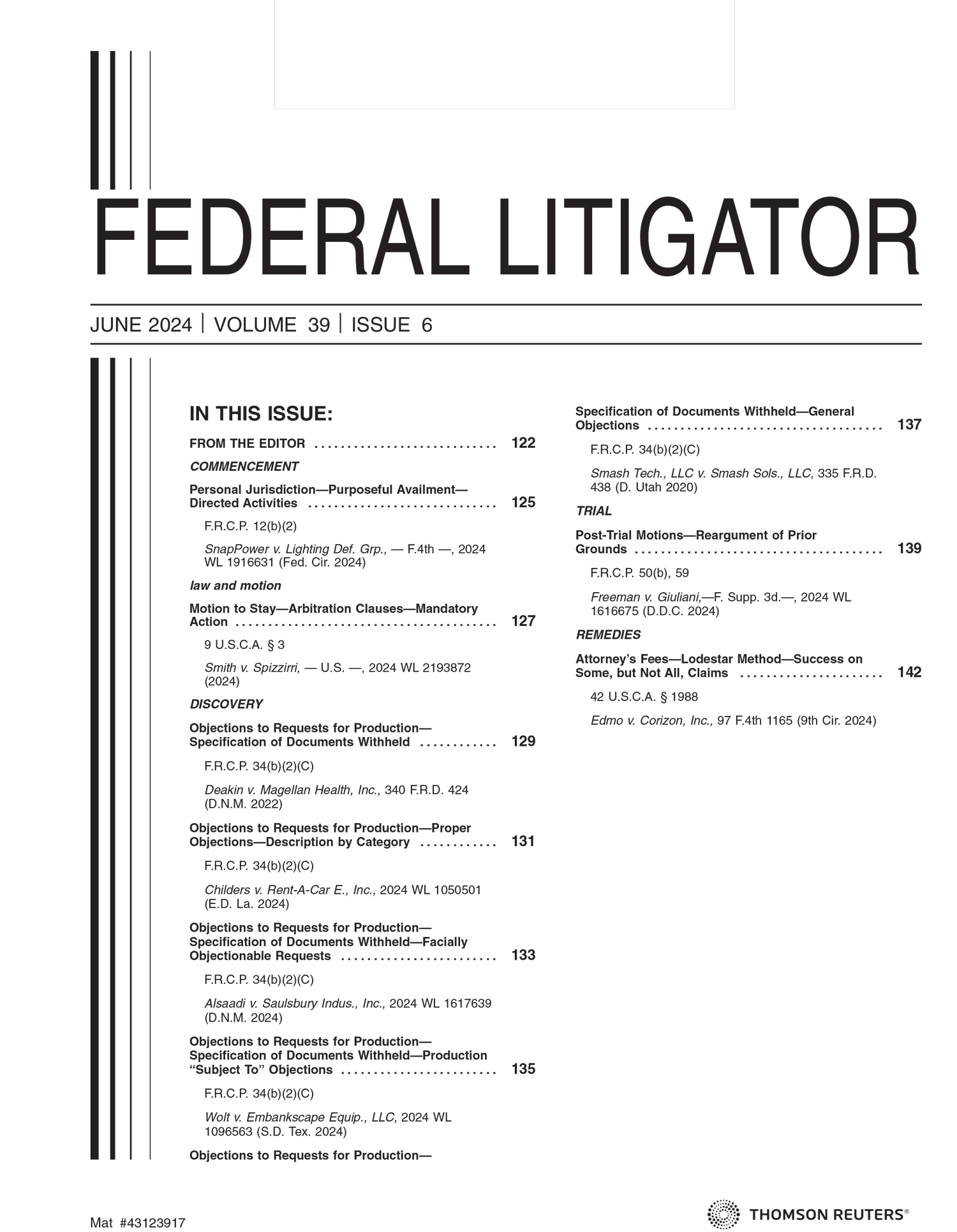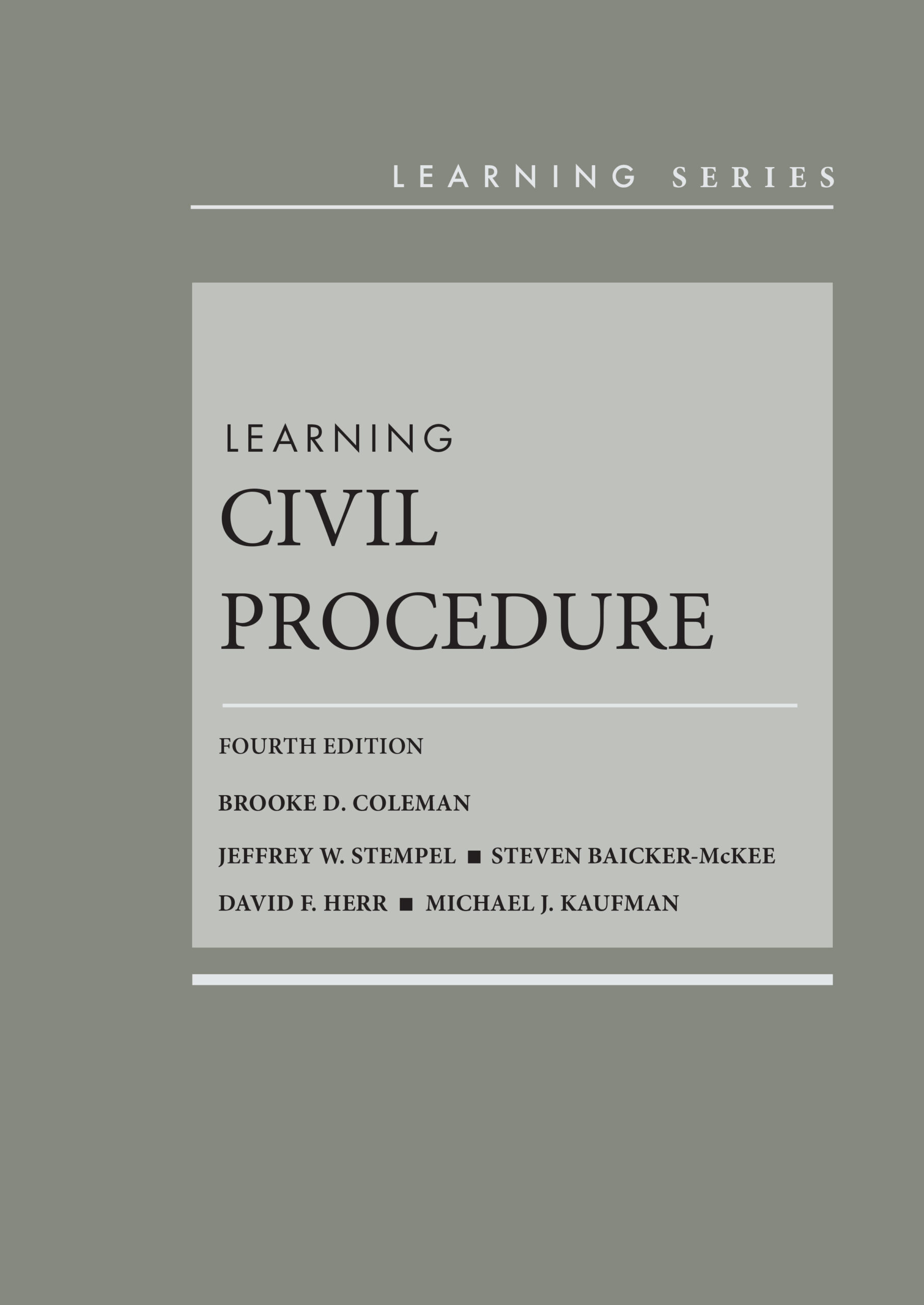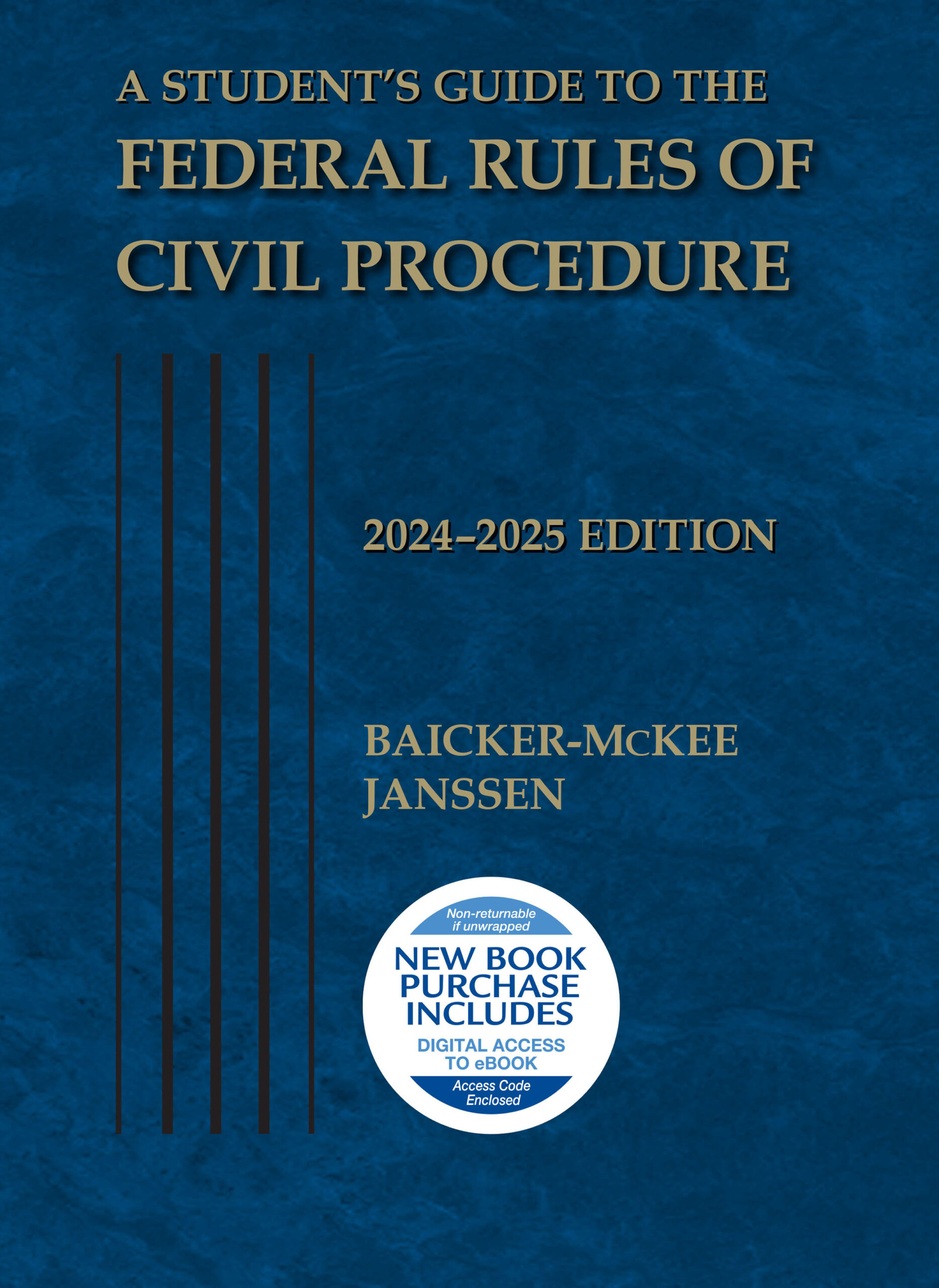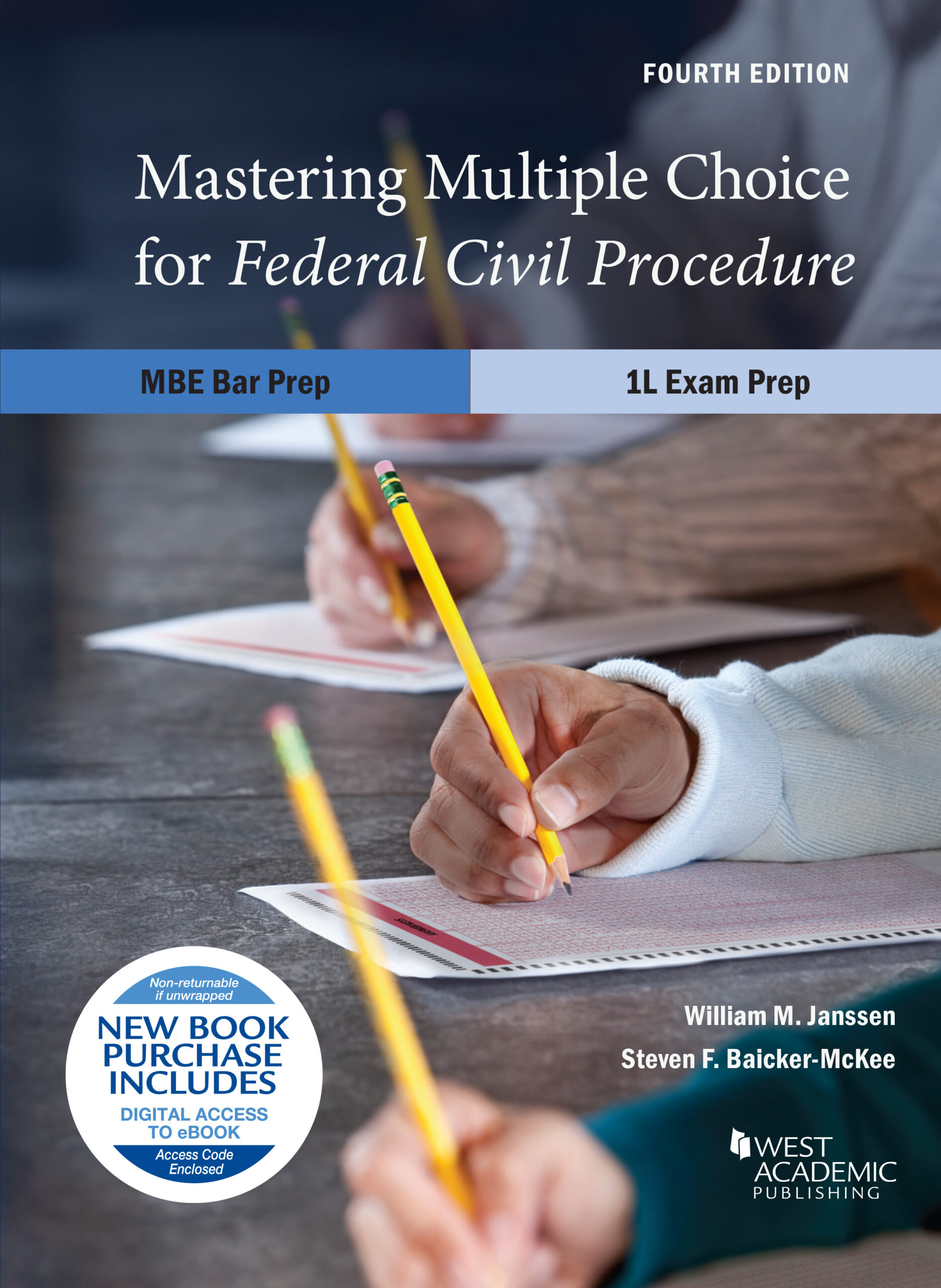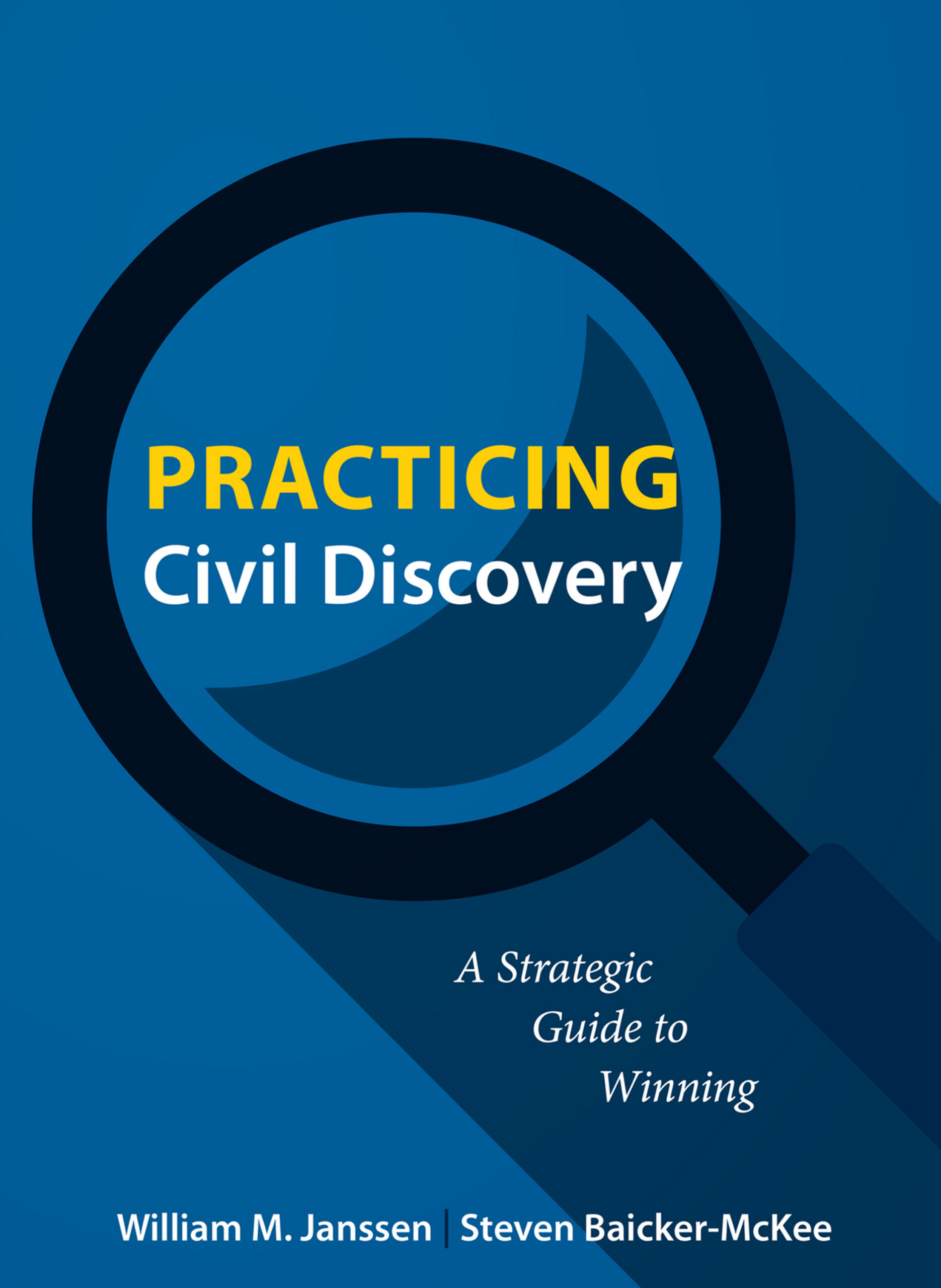Publications
Helpful books and publications for lawyers & law students
Federal Civil Rules Handbook:
If you own one book relating to litigating in federal court, the Federal Civil Rules Handbook should be that book. It’s an entire federal practice library in one volume that you can take from your office to your home office, to a deposition, to a client meeting, or to court. It includes a wealth of primary sources—the rules of civil procedure and evidence, frequently used sections of Title 28, and the advisory committee notes—plus author commentary providing “cookbook” like instruction for how each rule works and how to use it in practice, with similar guidance for non-rules based doctrines like personal jurisdiction, subject-matter jurisdiction, venue, preclusion, and the Erie doctrine. The Handbook is the best-selling authored text by the biggest legal publisher and has been cited thousands of times in court opinions and scholarly sources.
The Federal Litigator:
The Federal Litigator is a monthly newsletter that contains a discussion of eight to ten cases of broad interest to those who practice in federal courts. Steve selects cases that address a procedural, evidentiary, or jurisprudential issue of broad applicability (rather than cases that focus on substantive issues of primary interest only to those practicing in that area). Most editions contain a “deep dive” into an issue, using a series of cases to explore the contours and nuances of the issue.
Learning Civil Procedure:
Learning Civil Procedure is a law school text used in first-year civil procedure courses. It is an alternative to the traditional case book, based on the philosophy that reading case excerpts is an inefficient and ineffective way of learning about the complex and often bewildering rules and doctrines of federal procedure. In place of cases, Learning Civil Procedure provides clear explanations of these rules and doctrines, then enhances understanding with a series of short hypotheticals that illustrate the concepts. Although civil procedure is generally regarded as among the most difficult classes in the first year of law school, students using Learning Civil Procedure often describe civil procedure as the topic they understand best.
A Student’s Guide to the Federal Rules of Civil Procedure:
The value of A Student’s Guide to the Federal Rules of Civil Procedure begins where most law school supplements end. Like most supplements, A Student’s Guide contains the text of the rules, selected procedural statutes, and the U.S. Constitution. But unlike most supplements, A Student’s Guide contains student-friendly orientation to each rule. What many students often find challenging in studying civil procedure—and what is less likely to be found in either a casebook or a conventional study aid—is an understanding of how each rule or procedural doctrine works in practice and fits into the master scheme of federal civil practice generally. A Student’s Guide offers students that very guidance.
Mastering Multiple Choice for Federal Civil Procedure
You MUST buy this book if:
A. You are studying for your Bar Exam’s MBE multiple choice test, and are more than just a little freaked out by how broadly Civil Procedure can be tested;
B. You are in law school, enrolled in a Civil Procedure course, and you are exasperated trying to master the countless nuances of Civil Procedure;
C. You want a resource that helps coach you in improving multiple choice exam performance, with strategies, realistic questions, answers, and detailed explanations;
D. All of the above.
Practicing Civil Discovery
Written by two litigators-turned-professors with more than forty years of combined experience in nationwide complex litigation, Practicing Civil Discovery is a nuanced, practice-focused simulation resource for learning the process of civil discovery. Ideal either as a primary, stand-alone coursebook for upper-level litigation "skills" courses or as a simulation companion for first-year civil procedure courses, this text provides context-setting orientations to each discovery tool and process, explains how each functions in practice, includes hypotheticals to refine acquired knowledge and prompt classroom discussion, and supplies exemplar samples to illustrate discovery in operation.
Coming Soon/Works In Progress:
A New Lawyer’s Guide to Practicing Law
When speaking with recent law school grads, the refrain is always, “I wish I’d learned _____ in law school!” Steve and two colleagues are working on a text and series of instructional videos that fill in all those blanks. How do you pick a law firm? How do you bill your time? How do you deal with a difficult or demanding partner? We’ll answer these and dozens of similar questions so that new lawyers don’t have to learn by trial and error!
Clusterf*ck
Steve was the lead trial lawyer in the litigation flowing from the leukemia cluster in Fallon, Nevada. Seventeen children developed the same form of leukemia in a two-year period in this small town, leading the CDC to identify it as one of the clearest cancer clusters ever. Lots of books explore this type of situation from the perspective of the victims suing the evil corporation—David fighting Goliath. Steve represented the defendant and is writing this story from Goliath’s perspective—one rarely seen in popular press titles. But it’s more than a recounting of a fascinating case with a medical mystery and human drama, it’s a window into our civil court system—how it works (and sometimes doesn’t work) to provide justice to the parties.
Other Book Chapters and Selected Articles
Environmental Regulation and Litigation, a chapter in Environmental Forensics for Persistent Organic Pollutants (with Timothy Wolfson, Edward Yim, Kait Carey, Gwen O’Sullivan, and Brad Gilmore) Elsevier, 2014.
“Rewriting the e-Discovery Rules—The 2006 Amendments,” chapter in Instant Awareness: An Immediate Look at the Legal, Governmental, and Economic Ramifications of the Amendments to the Federal Rules of Civil Procedure and Electronic Discovery, (2008), Thomson/Aspatore.
Baicker-McKee, S., “Excited Utterance Paradox,” accepted for publication in the Seattle University Law Review
Baicker-McKee, S., “Mountain or Molehill?,” accepted for publication in the Duquesne University Law Review
Baicker-McKee, S., “Reconceptualizing Managerial Judges,” 65 Am. U. L. Rev. 353 (2016).
Baicker-McKee, S., “The Award of E-Discovery Costs to the Prevailing Party: An Analog Solution in a Digital World,” 63 Cle. St. L. Rev. 397 (2015).
Federal Litigator (with David Herr), monthly publication reporting on federal court developments, Thomson Reuters, 2013-16
Baicker-McKee, S., 2015. Discovery: Legal Aspects. In: James D. Wright (editor-in-chief), International Encyclopedia of the Social & Behavioral Sciences, 2nd edition, Vol 6. Oxford: Elsevier. pp. 516–522. This encyclopedia won the PROSE award for Excellence in Reference Works and for Multivolume Reference - Humanities & Social Sciences and was the number 1 most accessed Major Reference Work on ScienceDirect in 2015
Baicker-McKee, S., “Ch-Ch-Ch-Ch Changes, Turn and Face the Strange … 2015 Amendments to the FRCP,” Pennsylvania Bar Association Federal Practice Committee Newsletter, First Quarter 2016.
“Supreme Court’s Decision Clarifies Patent Infringement Jurisdiction,” Jurist, February 13, 2014
“Water Sourcing and Wastewater Disposal: Two of the Least Worrisome Aspects of Marcellus Shale Development in Pennsylvania,” (with Kevin Garber and Jean Mosites), Duquesne Business Law Journal
“The Consumer Product Safety Improvement act of 2008: The Next Big Wave of Litigation,” Civil Litigation Update, Pennsylvania Bar Association, Volume 14, No. 4, Fall 2009.
“Climate Change – Public Nuisance or Political Question?” (with Erica Koehl), Civil Litigation Update, Pennsylvania Bar Association, Volume 14, No. 2, Spring 2009.
“Proving Causation in Toxic Tort Litigation” (with Shawn Dryer & Chris Helms), Civil Litigation Update, Pennsylvania Bar Association, Volume 13, No. 3, Fall 2008.
“Rewriting the Rule Book: The 2007 Amendments to the Federal Rules of Civil Procedure,” Civil Litigation Update, Pennsylvania Bar Association, Volume 12, No. 3, Fall 2007.
“Western District Implements New Alternative Dispute Resolution Program,” (with Steven Collier), Civil Litigation Update, Pennsylvania Bar Association, Volume 11, No. 4, Fall 2006.
“‘Lone Pine’Orders and Their Effect on Toxic Tort Litigation” (with Antonino Legeza & Timothy C. Wolfson), Civil Litigation Update, Pennsylvania Bar Association, Volume 11, No. 4, Fall 2006.
“Significant New Amendments to the Federal Rules of Civil Procedure Addressing Electronic Discovery, Civil Litigation Update, Pennsylvania Bar Association, Volume 11, No. 3, Summer 2006.
“Data Quality and Risk Assessment” (with Timothy C. Wolfson), Civil Litigation Update, Pennsylvania Bar Association, Volume 11, No. 3, Summer 2006.
“American Telephone & Telegraph Co. v. Compagnie Bruxelles Lambert: A New Line of Defense for Parent Corporations,” Environmental Law Reporter, 1997.
“Regents, University of California v. Doe,” West’s Legal News, December 2, 1996.
“The Supreme Court to Determine the Scope of Eleventh Amendment Immunity,” West’s Legal News, December 2, 1996.
“Caterpillar v. Lewis: Can Jurisdiction at the Time of Trial Cure Faulty Removal,” West’s Legal News, November 11, 1996.
“Rule 30(b)(6) – Deposition of Party Representative: What Questions Should You Let Your Witness Answer?” West’s Legal News, September 9, 1996.
“Narrowing the Roads of Private Cost Recovery: Recent Developments Limiting the Recovery of Private Response Costs Under CERCLA §107,” (with others), The Environmental Law Reporter, Vol. XXV, No. 11, November, 1995.
“Suing the Federal Government Under CERCLA,” The Environmental Law Reporter. “Violence in Athletics: A Judicial Approach,” Entertainment & Sports Law Journal, Fall 1986.

